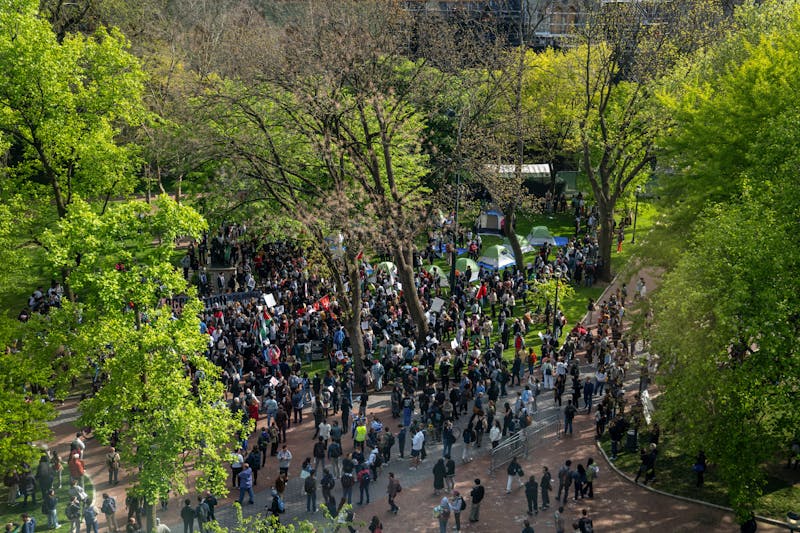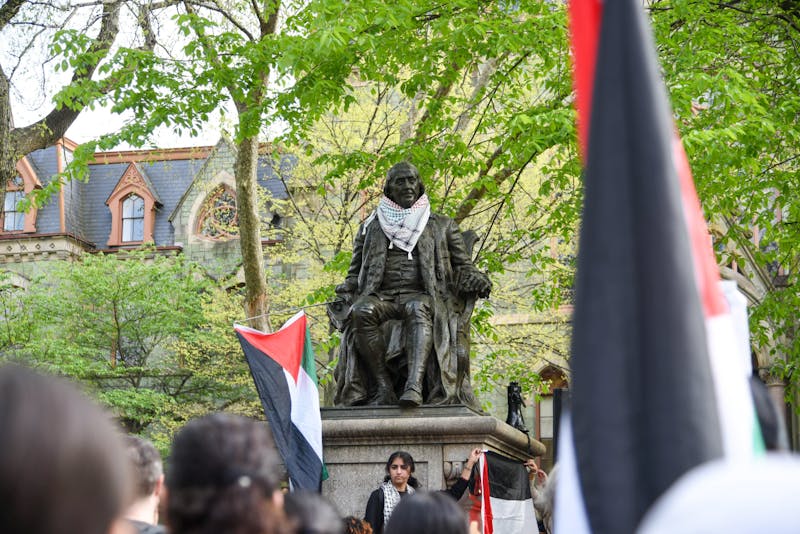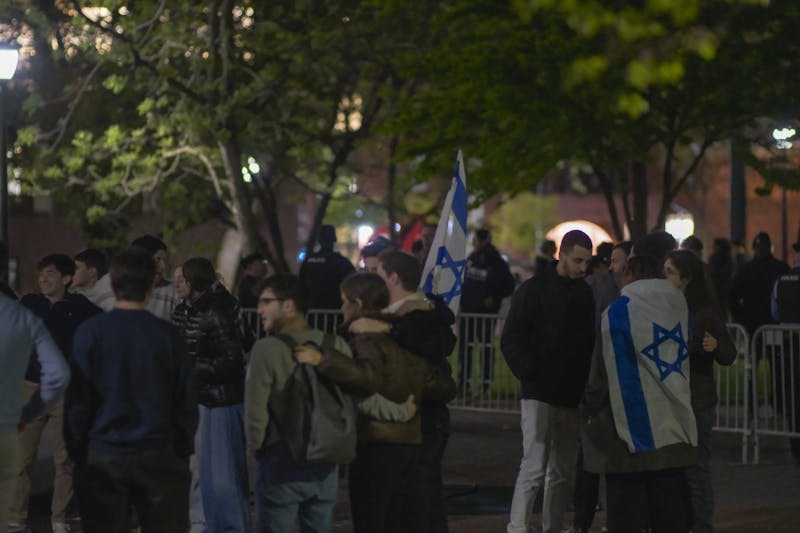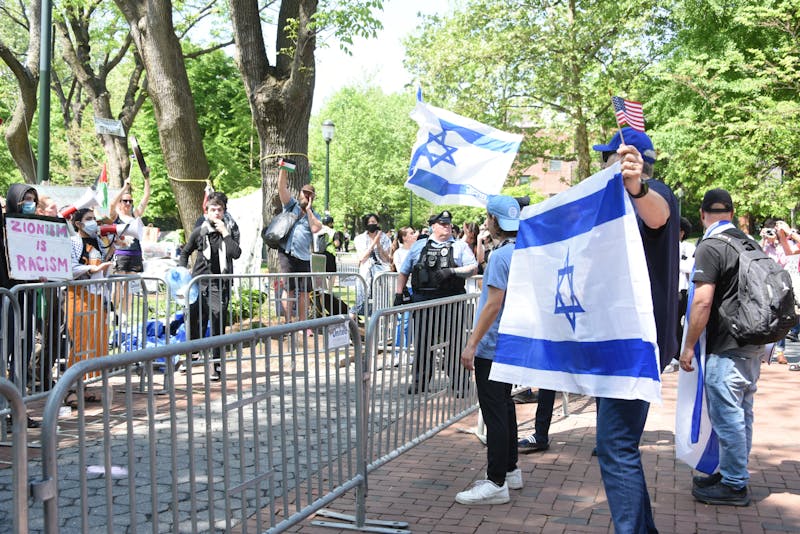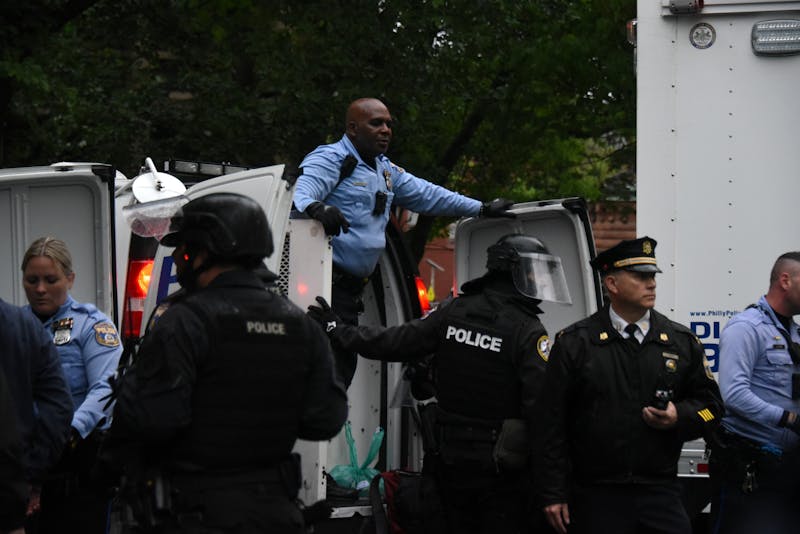
All over the country, student-led encampments for Gaza have popped up in recent days. The encampment at Penn was erected on April 25 following continued action at Columbia University, and since then, we have only seen the national movement continue to grow. This is a developing situation, and as of my writing this, there are over 50 encampments on campuses nationwide.
Penn is no stranger to being in the spotlight of the Israel-Palestine conflict's impact on elite college campuses. Back in September, the Palestine Writes Literature Festival brought a whirlwind of criticism to Penn’s door, and former Penn President Liz Magill’s response and actions thereafter led to her resignation.
As documented throughout history, protests and sit-ins have been utilized as a positive tool for change. At Penn, we are seeing hundreds of organizers and approximately 40 tents lining College Green. I support students’ rights to peaceful protest, as it is a cornerstone of our democracy. We’ve seen many examples of times when student protest at Penn brought forth the changes demanded. The 1969 College Hall sit-in against the displacement of West Philadelphia residents by the University is a prime example highlighted on Penn’s website. Currently, Penn graduate students are pushing to unionize and holding rallies to advance their objectives. An election that was originally scheduled for mid-April has been moved to May as students actively organize around the cause.
This long history of student activism will continue with the encampment involving Drexel and Temple students, as well as activists and community members from the greater Philadelphia area.
Free speech should be protected, but unfortunately, these peaceful demonstrations can still be met with violence. I’m well aware of how common police brutality and the use of excess force are, but videos of students in prayer being apprehended, students being tased when fully restrained, and professors being arrested have shocked members of society who believe said actions no longer occur. We exist in a world that is very much unjust, and I refuse to turn a blind eye.
We need better education surrounding the true protections of free speech and said limitations — hate speech is not — and should not be — protected. On the other hand, peaceful demonstrations should always be upheld. Without them, we lose one of the greatest tools for change we are given that is accessible to all. They're enshrined in the First Amendment for a reason, and our founding fathers — as do I — see free speech, press, and assembly as one of the best foundations we have.
These encampments are impossible to ignore, and that is one of the reasons they are being utilized. Students are so moved and agitated that the threat of arrest — especially in the case of entirely peaceful demonstrations — doesn’t subdue them: It inspires them to hold their ground.
On April 26, Interim Penn President Larry Jameson made a statement calling for the disbandment of the camps. I don’t see forcibly shutting down these camps as a viable solution towards long or short-term peace within the higher education system. The Israel-Palestine conflict has been ongoing for more than 100 years, and while I hope a solution can be reached in the future, that will not happen overnight. What can happen on university campuses like Penn’s is the demands of the protestors — most notably the release of Penn’s financial holdings and defense of pro-Palestinian students involved in protest — being thoughtfully considered and discussed by administration.
I urge people who disagree with the encampments to ask themselves what they would do if they witnessed a community they felt a personal connection to, or stood in solidarity with, being killed at drastically high numbers. The "scholasticide" of Palestinian scholars and mass killing of children — all partially funded by the United States government — present incredible injustices that we are witnessing in real time.
Penn does not stand alone, nor do any of these universities and their students. A sole encampment may be seen as a nuisance or waste of time, but together, across the country, these students stand in solidarity with each other and with Gaza.
When walking through the Penn encampment today, I witnessed people coming together to share poetry, engage in prayer, and provide resources and support to one another. More spaces of presumed support — endorsed by the University — would be helpful in allowing people to feel heard, seen, and valued without the need to occupy College Green.
I also urge people to remember that these encampments are not isolated to Penn or even to Ivy League schools. At our close neighbor Swarthmore, and in my own home state of Arizona, at Arizona State University, students are participating in these protests. All across the country, students are moved to take action.
I support Jameson and his statements regarding the safety and importance of cross-cultural communication and listening, and I urge Penn community members to do the same. That being said, Penn administration can call for the disbanding of the encampment and urge students to go home. But until they quell students’ desires for administrative accountability and provide spaces for Palestinian culture to be fully recognized, students’ rights to exercise their voices in a peaceful manner seem like they will prevail.

MIA VESELY is a College sophomore studying philosophy, politics, and economics from Phoenix, Ariz. Her email is mvesely@sas.upenn.edu.
The Daily Pennsylvanian is an independent, student-run newspaper. Please consider making a donation to support the coverage that shapes the University. Your generosity ensures a future of strong journalism at Penn.
Donate







